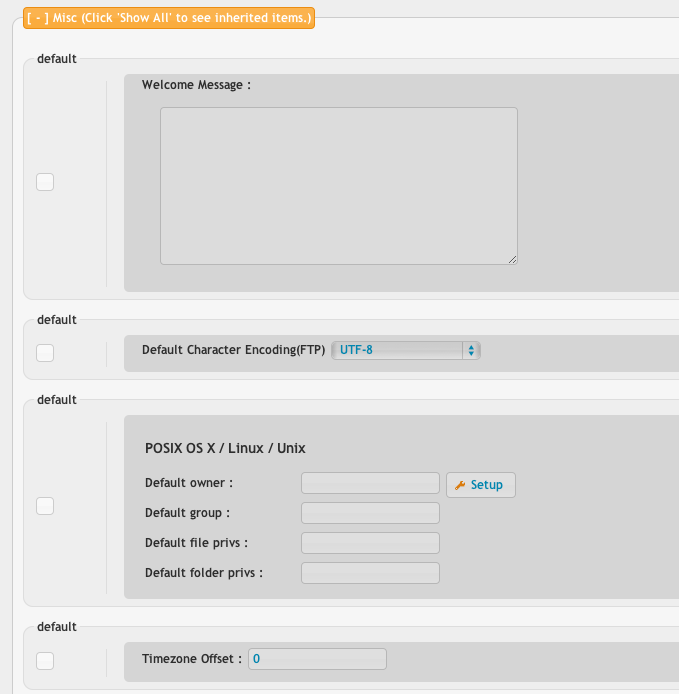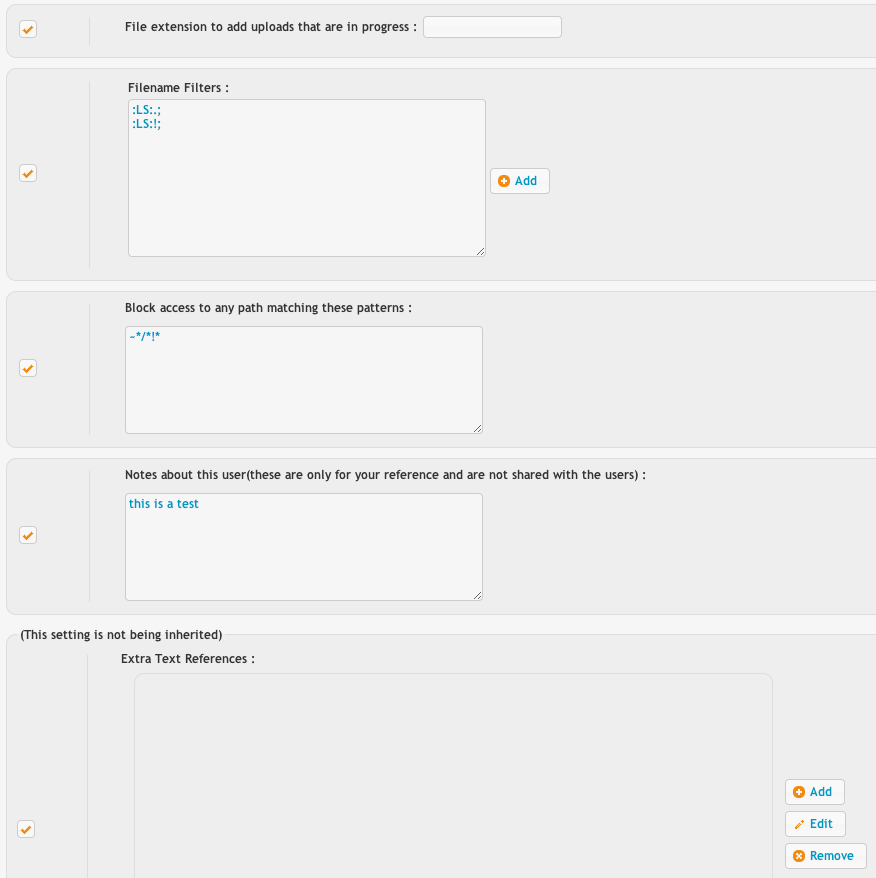FTP / SFTP Welcome message:#
The welcome message is displayed in a FTP clients session log when they connect to the server. No one looks at these...Default Character Encoding(FTP) #
UTF-8POSIX OS X / Linux / Unix#
Default owner: Default group: Default file privs: Default folder privs:
Timezone Offset: #
File extension to add to uploads that are in progress: #
Delete partial uploads. You must have temp extension for in progress files configured to apply this setting.#
Create home folder paths at login#
Disable MDTM modifications#
Custom User Session Log Path: #
(Replaces the global server configured user session log path.)
Filename Filters:#
Block access to any path matching these patterns:#
Notes about this user(these are only for your reference and are not shared with the users):#
Extra Text References:#
These items can be referenced throughout CrushFTP for extra customizations.They are referenced with a {user_x_itemName}. So if you had an item named firstName you would reference it with {user_x_firstName}.
Created on 05/13/2025 10:45:45 AM By Username:crushadmin Email:
The default character encoding controls how high ascii characters are encoded when being sent to a client. In general, most clients use UTF8, but some older clients use other encodings.
The POSIX settings let you set what user, group, and rpivs files get after they have been uploaded by a user when running CrushFTP in OS X, Linux, or Unix variants.
The timezone offset allows you to tweak how file times are handled to work around client issues with timezones.

The file extension to add on to files being uploaded lets you know when a file is still in use being uploaded and when its done. An extension like '.temp' or '.uploading' is appropriate.
Filename filters allow you to remove certain file types from being listed in directory listings, or from being uploaded or downloaded. Usually this will be like hiding files that start with a '.'.
Notes about this user might be useful when keeping track of contact info for a user, or what the account is for.
Extra text references allows you to make variables that can be referenced in places like the WebInterface forms.

